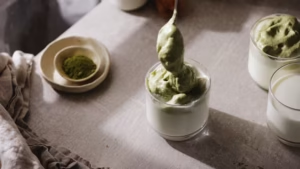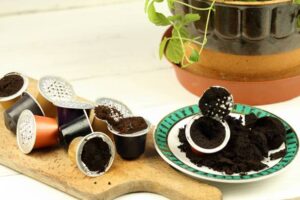Starting your day with a fresh cup of coffee is a ritual for many. But what do you do with the leftover coffee grounds? It’s tempting to just wash them down the sink, but is that really a good idea? In this blog post, we’ll explore why you might want to think twice before disposing of coffee grounds this way. We’ll discuss the potential problems, offer alternative disposal methods, and provide practical tips to keep your plumbing in top shape.
Why Coffee Grounds Shouldn’t Go Down the Sink
Potential for Clogs
Coffee grounds might seem tiny and harmless, but they can lead to significant plumbing issues. When washed down the sink, they tend to clump together. Over time, these clumps accumulate and create blockages. This can slow down drainage and, in severe cases, cause complete blockages requiring professional plumbing services.
Plumbing and Septic System Damage
Not only can coffee grounds clog your pipes, but they can also wreak havoc on your entire plumbing system. If your home uses a septic system, the grounds can disrupt the natural bacterial balance essential for breaking down waste. This could lead to expensive repairs and maintenance.
Environmental Concerns
Beyond plumbing issues, washing coffee grounds down the sink isn’t great for the environment. Once they enter the sewer system, they contribute to sludge buildup, complicating the water treatment process. By opting for more sustainable disposal methods, you can reduce your environmental footprint.
Alternative Ways to Dispose of Coffee Grounds
Composting
One of the best ways to dispose of coffee grounds is by adding them to your compost pile. They are rich in nitrogen, which helps create nutrient-rich compost for your garden. Just mix them with other compost materials like leaves and kitchen scraps, and you’re good to go.
Garden Use
If you don’t have a compost pile, you can still use coffee grounds directly in your garden. They act as a natural fertilizer and can help improve soil structure. Sprinkle them around the base of plants or mix them into the soil to give your garden a nutrient boost.
Household Uses
Believe it or not, coffee grounds have numerous household uses. They can act as a natural deodorizer for your refrigerator, a gentle abrasive for cleaning pots and pans, and even a component in homemade candles. The possibilities are endless!
How to Maintain Your Plumbing System
Regular Drain Maintenance
Even if you avoid washing coffee grounds down the sink, regular drain maintenance is crucial. Use a drain cover to catch debris and periodically clean your drains with a vinegar and baking soda solution. This will help prevent any potential clogs and keep your plumbing in great condition.
Professional Inspections
It’s always a good idea to have your plumbing system inspected by professionals at least once a year. They can identify any potential issues before they become major problems and offer solutions tailored to your home’s needs.
Avoid Other Problematic Substances
In addition to coffee grounds, be mindful of other substances that shouldn’t go down the drain. Grease, oil, and fibrous foods like onion skins and celery can also cause blockages. By being cautious, you can extend the life of your plumbing system and avoid costly repairs.
Common Myths About Coffee Grounds and Plumbing
Myth 1: Coffee Grounds Sharpen Garbage Disposal Blades
Some people believe that coffee grounds can help keep garbage disposal blades sharp. This is a myth. In fact, the grounds can cause buildup and clog the disposal, leading to malfunction and possible damage.
Myth 2: Hot Water Flushes Prevent Clogs
Another common myth is that flushing coffee grounds down the sink with hot water will prevent clogs. While hot water might push the grounds further down the pipe, it doesn’t dissolve them. The grounds will eventually settle and accumulate, causing blockages.
Myth 3: Small Amounts Are Harmless
It’s easy to think that a small amount of coffee grounds won’t do any harm. However, even small amounts can accumulate over time. Consistently washing small quantities down the sink can lead to significant plumbing issues in the long run.
Impact on Septic Systems
Disrupting Bacterial Balance
Septic systems rely on bacteria to break down waste. Coffee grounds can disrupt this balance, hindering the system’s efficiency. This can lead to more frequent pump-outs and potential system failure.
Increased Maintenance Costs
When coffee grounds interfere with septic system function, you might find yourself scheduling maintenance more frequently. This not only costs money but also disrupts your daily life. Avoiding coffee grounds in your sink can help maintain system efficiency and reduce overall costs.
Long-term Damage
Continual disposal of coffee grounds in a septic system can cause long-term damage. Over time, the buildup can lead to blockages and system failures, requiring extensive and expensive repairs.
Environmental Benefits of Proper Disposal
Reducing Waste
By composting or reusing coffee grounds, you reduce the amount of waste that ends up in landfills. This helps lower methane emissions, a potent greenhouse gas contributing to climate change.
Enhancing Soil Health
Using coffee grounds in your garden or compost pile enhances soil health. They add valuable nutrients, improve soil structure, and support microbial activity, leading to healthier plants and higher yields.
Lowering Water Treatment Costs
Avoiding coffee grounds in the sewer system reduces the burden on water treatment facilities. This can help lower treatment costs and improve water quality, benefiting the environment and community.
DIY Projects with Coffee Grounds
Natural Deodorizer
Coffee grounds can act as a natural deodorizer. Place a container of dried grounds in your refrigerator or sprinkle them in your trash can to neutralize odors. They absorb smells and leave a pleasant coffee scent.
Cleaning Scrub
Combine coffee grounds with a little dish soap to create a natural, abrasive scrub. This is perfect for cleaning pots, pans, and countertops. The grounds’ texture helps remove stubborn grime without scratching surfaces.
Homemade Candles
Use coffee grounds to make homemade candles. Mix them into the wax for a unique texture and aroma. These candles make great gifts and bring a warm, cozy atmosphere to your home.
FAQs About Coffee Grounds Disposal
Can I Wash Coffee Grounds Down the Sink?
No, washing coffee grounds down the sink can cause clogs and damage your plumbing system.
What Are Some Alternatives to Disposing of Coffee Grounds?
Consider composting, using them in your garden, or repurposing them for household projects.
How Can I Maintain My Drains?
Use a drain cover, clean your drains regularly with a vinegar and baking soda solution, and avoid washing problematic substances down the drain.
Is It Okay to Throw Coffee Grounds in the Trash?
Yes, you can throw coffee grounds in the trash, though composting or reusing them is more environmentally friendly.
Can Coffee Grounds Damage My Septic System?
Yes, coffee grounds can disrupt the bacterial balance in a septic system, leading to inefficiency and potential damage.
Conclusion
While it might be convenient to wash coffee grounds down the sink, the potential problems far outweigh the benefits. From clogging your drains to damaging your septic system, improper disposal can lead to costly repairs and environmental harm. Instead, consider composting, gardening, or repurposing your coffee grounds. Not only will you protect your plumbing, but you’ll also contribute to a healthier environment. For more tips on maintaining your home and living sustainably, visit our blog and subscribe to our newsletter.
Avoid unnecessary plumbing issues—dispose of your coffee grounds the right way!






